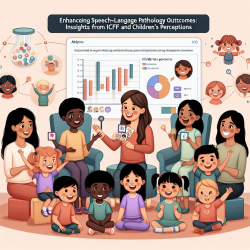The Latinx community represents the largest minority group in the United States, comprising approximately 18% of the total population. Despite this significant presence, access to quality behavioral and mental health services remains a challenge for many within this community. The research article "Increasing Access and Quality of Behavior-Analytic Services for the Latinx Population" sheds light on this issue and offers valuable insights for behavior analysts seeking to enhance their practice.
Understanding Cultural and Language Barriers
The research highlights several barriers that Latinx individuals face when accessing behavioral health services, including language proficiency and cultural differences. Many Latinx families encounter difficulties due to limited English proficiency (LEP), which can lead to miscommunication and misinformation regarding diagnoses and treatment options. Additionally, cultural values such as familismo and fatalismo play a significant role in shaping attitudes toward mental health services.
Recommendations for Systemic Change
The study suggests several systemic actions to improve access and quality of services for the Latinx population:
- Increasing Diversity in the Workforce: Encouraging more Latinx individuals to pursue careers in behavior analysis can help bridge cultural gaps and provide culturally sensitive services.
- Enhancing Training Programs: Incorporating training on cultural and language-related issues into behavior-analytic education can better prepare practitioners to serve diverse populations.
- Conducting Research: Further research is needed to explore cultural and language adaptations to evidence-based treatments, ensuring they are effective across different cultural contexts.
Practical Steps for Practitioners
Behavior analysts can take several practical steps to improve their services for the Latinx community:
- Cultural Competence Training: Engage in professional development activities focused on cultural responsiveness and diversity.
- Language Support: Utilize interpreters or bilingual staff to ensure clear communication with LEP families.
- Community Engagement: Collaborate with local organizations and cultural centers to build trust and understanding within the community.
The Importance of Social Validity
Social validity refers to the extent to which treatment goals, methods, and outcomes are deemed acceptable by all stakeholders involved. For behavior analysts working with the Latinx population, ensuring social validity is crucial. By incorporating consumer values and preferences into treatment plans, practitioners can enhance treatment efficacy and foster stronger therapeutic relationships.
The findings from this research underscore the importance of addressing cultural and linguistic factors in behavior-analytic practice. By implementing these recommendations, practitioners can make meaningful strides toward improving access and quality of services for the Latinx community.
To read the original research paper, please follow this link: Increasing Access and Quality of Behavior-Analytic Services for the Latinx Population.










